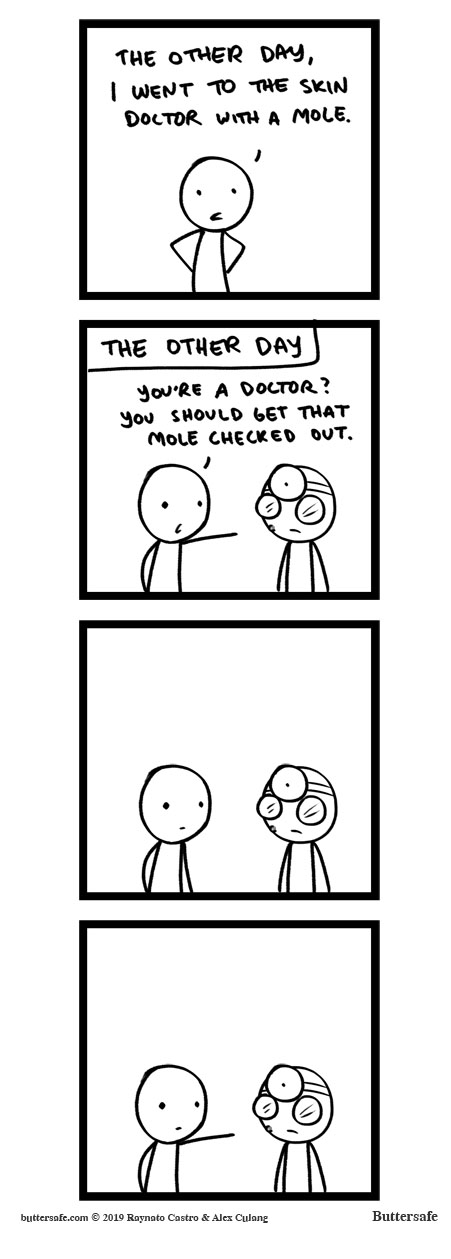Singular or Plural?
Some words can go either way, depending on how they fit into your sentence. I ran into this pair of sentences in an excellent book I just finished, page 217:
The estimated global migrant population is about 244 million, about 3.3% of global population. In other words, 96.7% of humanity continue to reside in their country of birth.
A population (of 224 million) gets a perfectly correct singular verb even though it refers to millions of people (“population” is singular; 224 million is the object of “of.”). But then we have “humanity,” also a singular noun, in front of a plural verb, “continue.”
What’s up? Well, “humanity” is the object of “of,” so it doesn’t count. The actual subject of the verb is “percent.” I guess being 96.7 percent is strong enough to make it a plural.
What do you think?
Subscribe to this blog's RSS feed
Antecedent Joke
I often complain about questionable antecedents being the bugbear of pronouns. Well, it can happen with prepositional phrases, too.

A part of good writing is thinking how you might be misunderstood, then preventing the misunderstanding. So how would you rewrite the statement in the first panel so the person with the mole wasn’t ambiguous?
I Had Forgotten this Word
This post is mainly for the language geeks among us. I have occasionally used the expression “verbing a noun” (use the search box in the upper right corner), mainly because I had seen that usage, and had forgotten that we have a technical word for that! Backformation. In fact, to use “verb” as a verb is example of backformation. But there’s more to it than that.
If you’re interested, here’s a pretty good article about backformation:
Sorry, no comic today.
Idioms Depend on Context
Idioms are phrases in a language not meant to be taken literally. When we don’t understand something, we might say “It’s Greek to me,” whereas in Germany you’d say (in German) “It’s a Bohemian village to me.”
Here are some idioms whose meanings depend on context:

What are your favorite idioms? Feel free to put some in the comments.
This post first appeared on The Writing Rag.
What’s an Oxymoron?
Oxymorons are names (usually two words) for things that are self contradictory. Easy post for me today; John Atkinson put together a clever collection of oxymorons.

